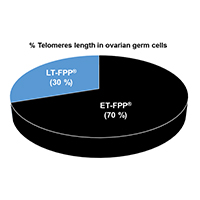Anti-aging and anti-tumor effect of FPP® supplementation

Accepted: 29 February 2020
HTML: 22
All claims expressed in this article are solely those of the authors and do not necessarily represent those of their affiliated organizations, or those of the publisher, the editors and the reviewers. Any product that may be evaluated in this article or claim that may be made by its manufacturer is not guaranteed or endorsed by the publisher.
Authors
The beneficial effect of FPP® as antioxidant is known. Here we summarize recent data supporting future implementation of FPP® in tumor treatment and in controlling aging at the molecular level. We first showed that oral FPP® is able to control tumor growth and with inducing a potent and systemic anti-oxidant reaction (i.e. reduced ROS and increased GSH and SOD-1). Then we showed that FPP® is able to markedly increase the body anti-oxidant reaction together with increasing both telomerase activity in the blood and the telomeres length in bone marrow and ovary of treated mice as compared to the untreated mice.
How to Cite
PAGEPress has chosen to apply the Creative Commons Attribution NonCommercial 4.0 International License (CC BY-NC 4.0) to all manuscripts to be published.

 https://doi.org/10.4081/ejtm.2019.8905
https://doi.org/10.4081/ejtm.2019.8905



